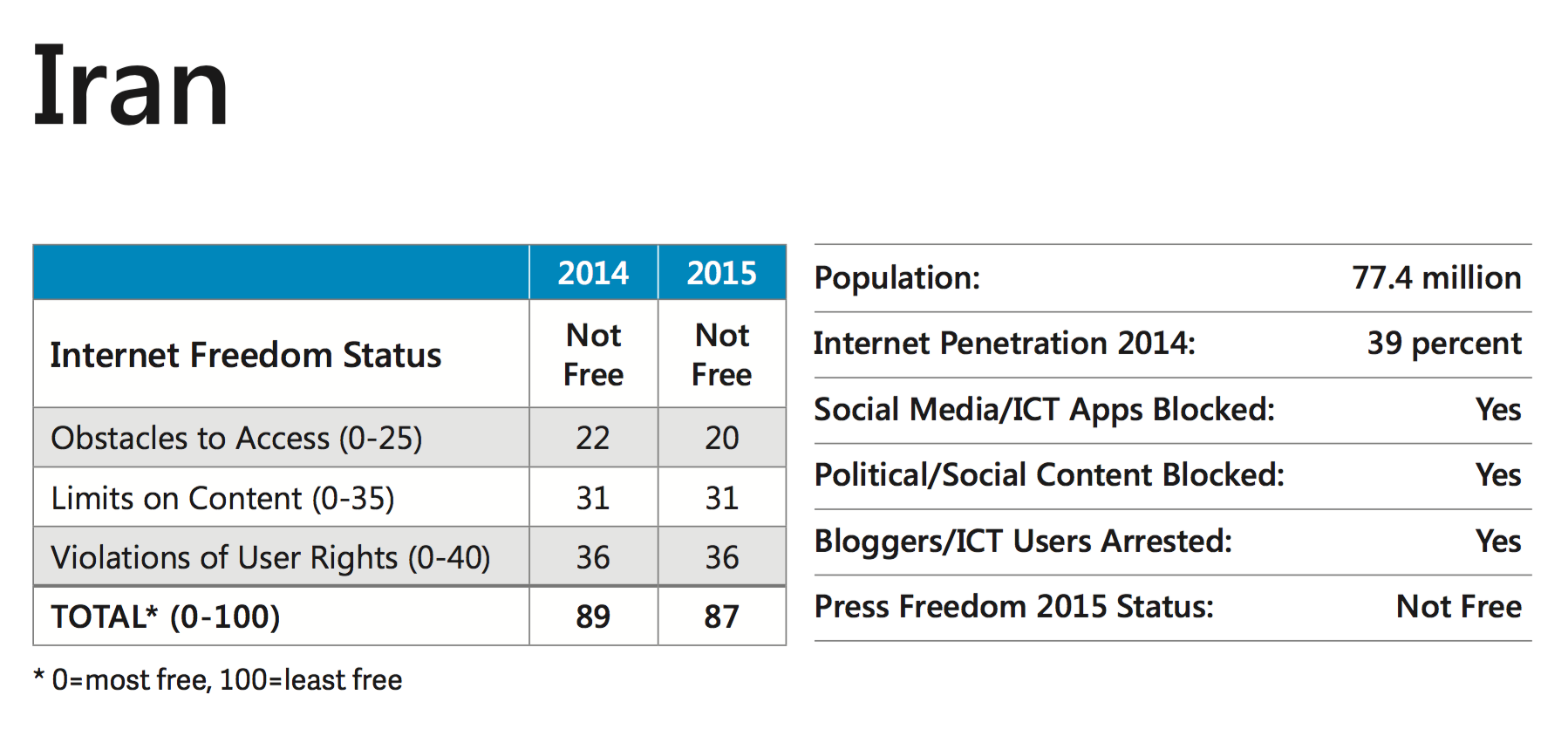Freedom house, Freedom on the net 2015 report


Freedom house just released their annual report on Internet freedom, and Iran ranked 3rd worst country in Net Freedom in the world very closely after China and Syria. Full report can be downloaded from here. Very interesting read indeed, Iran also has it's own dedicated report which can be found here.
Key Developments mentioned in the report: June 2014 – May 2015
- The ICT ministry’s budget reached its highest level in history, re ecting increasing investments in both internet infrastructure and censorship tools (see Availability and Ease of Access).
- An exclusive 3G contract issued to mobile operator RighTel was not renewed, thereby open- ing up licensing to all operators in a move that was not welcomed by the Supreme Council of Cyberspace and hardliners, who regard mobile internet as “un-Islamic” (see Regulatory Bodies).
- While the administration of President Hassan Rouhani did not ful ll campaign promises to unblock popular social media platforms, the government managed to change content block- ing procedures to give government ministers more say over hardliners appointed by the Su- preme Leader. This enabled the ICT ministry to push back against attempts to block chatting apps WhatsApp and Viber (see Blocking and Filtering).
- Several news sites were blocked throughout the year for publishing news on corruption or images of former political leaders that have fallen out of favor with the Supreme Leader (see Blocking and Filtering).
- In August 2014, Iranian cartoonist Atena Farghadani was arrested on charges of insulting state of cials and spreading propaganda for posting an image of a parliamentary vote on reproductive rights. She was released in December, only to be rearrested one month later af- ter uploading a video describing the abuse she faced at the hands of prison guards. She was sentenced to more than 12 years in prison in August 2015 (see Prosecutions and Detentions).
- In July and August 2014, authorities prevented an estimated 75 percent of users from con- necting to Tor, an anonymous web-browsing tool used to evade censorship and surveillance (see Surveillance, Privacy, and Anonymity).